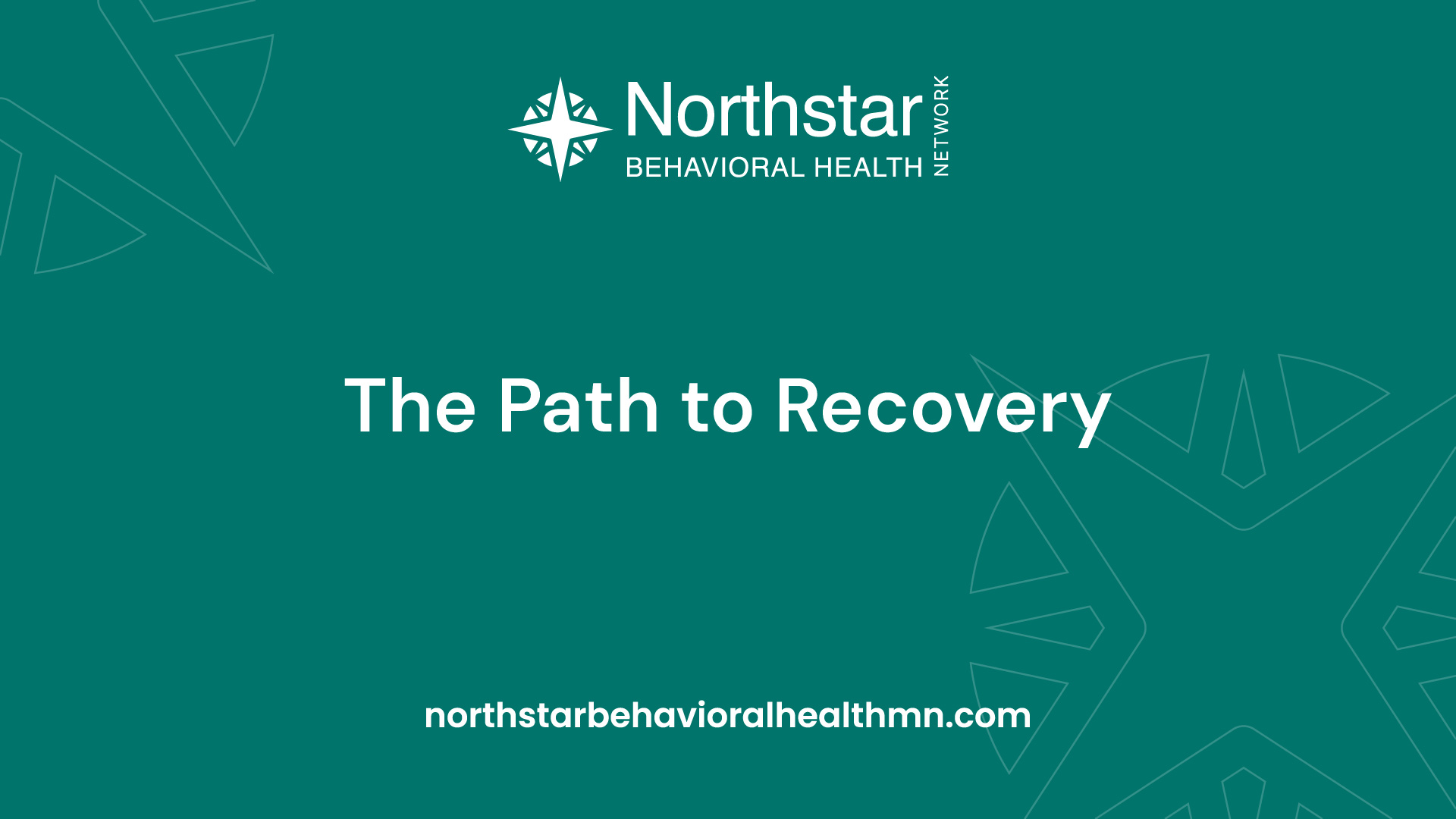August 27, 2024
How Motivational Interviewing Aids Addicts In Recovery
Discover how motivational interviewing empowers willing addicts on their journey to recovery.


Understanding Addiction and Recovery
In order to grasp the significance of motivational interviewing in supporting willing addicts, it's crucial to have a solid understanding of addiction and the path to recovery.
The Struggle of Addiction
Addiction is a complex and challenging condition that affects individuals from all walks of life. It is characterized by a compulsive and uncontrollable desire to engage in a particular behavior or consume a substance, despite the negative consequences it may have on one's physical, mental, and emotional well-being.
Addiction often begins with an initial choice or exposure to a substance or behavior. Over time, the brain's reward system undergoes significant changes, leading to a heightened craving for the substance or behavior. This can result in a loss of control, with individuals experiencing intense urges and difficulty abstaining from the addictive behavior.
Substances such as drugs and alcohol, as well as addictive behaviors like gambling or excessive gaming, can quickly take hold and disrupt various aspects of an individual's life. Relationships, finances, and overall health can suffer as addiction becomes the primary focus.
The Path to Recovery

Recovery from addiction is a journey that involves breaking free from the grip of substance abuse or addictive behaviors and rebuilding a healthier and more fulfilling life. It's important to note that recovery is a highly individualized process, and what works for one person may not work for another.
The path to recovery often begins with recognizing and acknowledging the existence of the addiction. This is often followed by a desire to change and a willingness to seek help. Support from friends, family, and healthcare professionals can play a crucial role in this process.
Treatment approaches for addiction vary depending on the individual's needs and preferences. They may include detoxification, counseling, therapy, support groups, and in some cases, medication-assisted treatment. The recovery journey is not linear, and setbacks or relapses can occur. However, with the right support and mindset, individuals can continue to progress towards long-term sobriety and well-being.
By understanding the struggle of addiction and the path to recovery, we can better appreciate how motivational interviewing can support those who are willing to embrace recovery. In the following sections, we will delve deeper into the principles and practical application of motivational interviewing in helping individuals overcome the challenges of addiction.
Motivational Interviewing: An Introduction
Motivational Interviewing (MI) is an evidence-based approach that can greatly support individuals who are willing to embrace recovery from addiction. By understanding the principles and techniques of MI, addiction professionals can effectively guide and empower individuals in their journey towards lasting change.
What is Motivational Interviewing?

Motivational Interviewing is a collaborative conversation style that aims to strengthen an individual's motivation and commitment to change. It is rooted in the belief that individuals have the capacity for change, and that their motivation to change can be influenced and enhanced through empathetic and non-confrontational communication.
Rather than imposing change or providing solutions, MI encourages individuals to explore and resolve their own ambivalence towards change. It involves asking open-ended questions, actively listening, and reflecting back what the individual is expressing. By doing so, MI helps individuals gain insight into their own motivations and values, thus increasing their readiness for change.
Principles of Motivational Interviewing
Motivational Interviewing is guided by several key principles that shape its approach:
- Express Empathy: MI emphasizes the importance of empathy and understanding in building a supportive therapeutic relationship. The addiction professional should strive to genuinely understand and accept the individual's perspective and experiences without judgment.
- Develop Discrepancy: MI helps individuals recognize the discrepancy between their current behavior and their broader goals, values, and aspirations. By highlighting this discrepancy, individuals are motivated to resolve their ambivalence and move toward positive change.
- Roll with Resistance: Rather than confronting and opposing resistance, MI encourages the addiction professional to "roll with" resistance and avoid engaging in power struggles. By responding with empathy and understanding, the professional can foster a safe and non-confrontational environment that promotes open dialogue.
- Support Self-Efficacy: MI recognizes that individuals have the capacity to change and encourages them to believe in their own ability to make positive changes. Addiction professionals can support self-efficacy by acknowledging an individual's strengths, past successes, and the resources they possess to overcome challenges.
By adhering to these principles, addiction professionals can effectively engage individuals in the process of change, leading to increased motivation and commitment to their recovery journey.
Motivational Interviewing is a versatile approach that can be applied across various stages of addiction recovery. In the following sections, we will explore how MI specifically supports willing addicts in building self-motivation and enhancing their confidence and commitment to recovery.
How Motivational Interviewing Supports Willing Addicts

Motivational Interviewing (MI) is a powerful approach that can greatly support individuals who are willing to embrace recovery from addiction. By employing specific techniques and principles, MI helps to build self-motivation, enhance confidence, and foster commitment. Let's explore these aspects in more detail.
Building Self-Motivation
One of the core principles of Motivational Interviewing is to elicit and strengthen an individual's own motivation for change. In the context of addiction recovery, this means helping willing addicts recognize and explore their own reasons for wanting to overcome their addiction. By engaging in open-ended conversations, active listening, and empathy, MI practitioners can guide individuals to reflect on their values, goals, and aspirations.
Through this process, individuals gain a deeper understanding of how their addiction is impacting their lives and the positive changes they desire. By building self-motivation, MI helps individuals develop a strong internal drive to make lasting changes and stay committed to their recovery journey.
Enhancing Confidence and Commitment
Motivational Interviewing also focuses on enhancing an individual's confidence and commitment to change. MI practitioners work collaboratively with individuals, acknowledging their strengths and supporting their belief in their ability to change. This collaborative approach helps individuals recognize and build upon their past successes, reinforcing their confidence in their capacity to overcome their addiction.
Additionally, MI techniques such as decisional balance and exploring the pros and cons of change help individuals evaluate the benefits of recovery and the costs of continued substance use. By weighing these factors, individuals can make more informed decisions and strengthen their commitment to their recovery goals.
By helping willing addicts build self-motivation, enhance confidence, and foster commitment, Motivational Interviewing provides a valuable framework for supporting individuals on their recovery journey. It empowers individuals to take ownership of their recovery, increasing their chances of long-term success.
The Role of Willingness in Recovery
When it comes to addiction recovery, willingness plays a crucial role in the journey towards a healthier and substance-free life. Recognizing the importance of willingness and overcoming ambivalence are essential steps in the recovery process.
Recognizing the Importance of Willingness
Willingness is the foundation upon which successful recovery is built. It involves acknowledging and accepting the need for change and actively desiring to make positive transformations in one's life. Without a genuine willingness to embrace recovery, it can be challenging to break free from the grip of addiction.
In the context of addiction, willingness refers to the internal motivation and readiness to engage in the recovery process. It involves being open to exploring new perspectives, seeking help, and making the necessary lifestyle changes to support sobriety. Recognizing the importance of willingness empowers individuals to take ownership of their recovery journey and make the necessary commitments to achieve lasting change.
Overcoming Ambivalence
Ambivalence, or mixed feelings, is a common experience for individuals struggling with addiction. While part of them may recognize the negative impact of substance abuse, another part may feel attached to the familiar patterns and hesitant about the challenges that come with recovery. Overcoming ambivalence is an important step in cultivating willingness.
Motivational interviewing, a therapeutic approach commonly used in addiction treatment, can be immensely helpful in addressing ambivalence and nurturing willingness. This person-centered approach helps individuals explore their motivation for change, resolve any conflicting feelings, and build confidence in their ability to pursue recovery.
Through motivational interviewing, individuals are encouraged to examine the pros and cons of their addictive behavior, consider the impact of addiction on their lives and relationships, and envision a future free from substance abuse. This process helps to align their goals and values with their desire for recovery, ultimately fostering a greater sense of willingness.
By recognizing the importance of willingness and actively working to overcome ambivalence, individuals can set themselves on a path towards lasting recovery. Motivational interviewing provides a valuable framework for supporting and nurturing willingness, empowering individuals to make positive changes and embrace a healthier, substance-free life.
For further information on addiction recovery, including resources and support options, visit our article on seeking help and support.
Practical Application of Motivational Interviewing

Motivational interviewing is a powerful approach used to support individuals in their journey towards recovery. By employing specific techniques, counselors and therapists can effectively engage with clients, fostering self-motivation and commitment to change. In this section, we will explore some commonly used techniques in motivational interviewing and highlight the importance of case studies and success stories.
Techniques Used in Motivational Interviewing
Motivational interviewing utilizes a range of techniques that empower individuals to explore their own motivations and make positive changes in their lives. Some common techniques used in this approach include:
- Open-ended questions: These questions encourage individuals to reflect on their experiences and express their thoughts and feelings freely. By actively listening to their responses, counselors can gain insights into their motivations and goals.
- Affirmations: Affirmations involve acknowledging and reinforcing a person's strengths, efforts, and successes. They help to enhance self-confidence and build a positive therapeutic relationship.
- Reflective listening: Reflective listening involves paraphrasing and summarizing what the individual has said, demonstrating empathy and understanding. This technique helps individuals feel heard and validated, fostering trust and openness.
- Eliciting change talk: Change talk refers to statements made by individuals that express their desire, ability, reasons, or need for change. By eliciting change talk, counselors can help individuals explore their own motivations and build self-motivation.
- Rolling with resistance: Instead of confronting resistance, motivational interviewing aims to understand and address it with empathy and respect. By avoiding arguments and power struggles, counselors can create a safe and non-judgmental space for individuals to explore their ambivalence and move towards change.
Case Studies and Success Stories
Case studies and success stories serve as valuable resources in the practical application of motivational interviewing. They provide real-life examples that illustrate the effectiveness of this approach and inspire hope in individuals seeking recovery.
Case studies involve in-depth analysis of specific individuals' experiences with motivational interviewing. These studies showcase the therapeutic process, highlighting the techniques used and the outcomes achieved. By examining the journey of others, individuals can gain insights into their own challenges and potential paths to recovery.
Success stories, on the other hand, focus on individuals who have successfully embraced change and achieved their recovery goals through motivational interviewing. These stories serve as powerful motivators, demonstrating that change is possible and providing inspiration for those who may feel discouraged.
Both case studies and success stories emphasize the importance of personalized and client-centered approaches in addiction recovery. By sharing these narratives, counselors and therapists can instill hope, increase motivation, and provide tangible examples of how motivational interviewing can support individuals in their recovery journeys.
If you're interested in exploring motivational interviewing further, consider seeking out programs or therapists who specialize in this approach. Our article on finding motivational interviewing programs can provide guidance on locating resources and support for your recovery journey. Remember, everyone's path to recovery is unique, and by incorporating motivational interviewing techniques, you can enhance your self-motivation and commitment to change.
Seeking Help and Support
When it comes to addiction recovery, seeking help and support is essential for individuals who are willing to embrace a new path. Motivational interviewing can be a valuable tool in this journey, providing guidance and assistance. Here are two important aspects to consider: finding motivational interviewing programs and accessing additional resources for ongoing support.
Finding Motivational Interviewing Programs
Finding a suitable motivational interviewing program is a crucial step for those looking to benefit from its techniques and principles. These programs are designed to provide individuals with the necessary skills and support to overcome their addiction and maintain long-term recovery.
To find motivational interviewing programs, consider the following options:
- Treatment Centers: Many addiction treatment centers incorporate motivational interviewing as part of their comprehensive approach. These centers offer structured programs that combine therapy, counseling, and support groups to address the unique needs of each individual. Reach out to local treatment centers or utilize online directories to find programs near you.
- Mental Health Clinics: Some mental health clinics offer motivational interviewing as a standalone service or as part of a broader treatment plan. These clinics often have trained professionals who specialize in addiction and recovery.
- Support Groups: Support groups such as Alcoholics Anonymous (AA) and Narcotics Anonymous (NA) incorporate motivational interviewing techniques into their meetings. Attending these groups can provide opportunities to learn from others who have gone through similar experiences and receive support from peers.
Remember, it's important to research and choose a program that aligns with your specific needs and goals. The right program can provide you with the necessary tools and support to navigate the challenges of addiction recovery.
Resources for Recovery Support
In addition to motivational interviewing programs, there are various resources available to support individuals in their recovery journey. These resources can provide ongoing guidance, education, and assistance. Here are some options to consider:
- Online Resources: The internet offers a wealth of information and resources for addiction recovery. Websites, forums, and online communities dedicated to recovery can provide valuable insights, tips, and support. Look for reputable websites and forums that offer evidence-based information and connect you with a community of individuals on a similar path.
- Hotlines and Helplines: National and local hotlines are available to provide immediate support and guidance for individuals struggling with addiction. These helplines are staffed by trained professionals who can offer guidance, information, and referrals to local resources.
- Books and Literature: There are numerous books and literature available that focus on addiction recovery and motivational interviewing techniques. These resources can provide valuable insights, strategies, and personal stories that can inspire and motivate individuals on their journey.
- Peer Support Groups: In addition to formal support groups, peer-led support groups such as SMART Recovery and LifeRing Secular Recovery can provide a supportive and understanding environment. These groups emphasize self-empowerment and personal responsibility, aligning with the principles of motivational interviewing.
By accessing these resources, individuals can find the support and guidance they need to sustain their motivation and commitment to recovery.
Motivational interviewing, combined with the right programs and resources, can be a powerful catalyst for change in the lives of those struggling with addiction. Whether it's finding a motivational interviewing program or accessing additional support resources, taking the first step towards seeking help can make a significant difference in the recovery journey.

.jpg)




.jpg)

